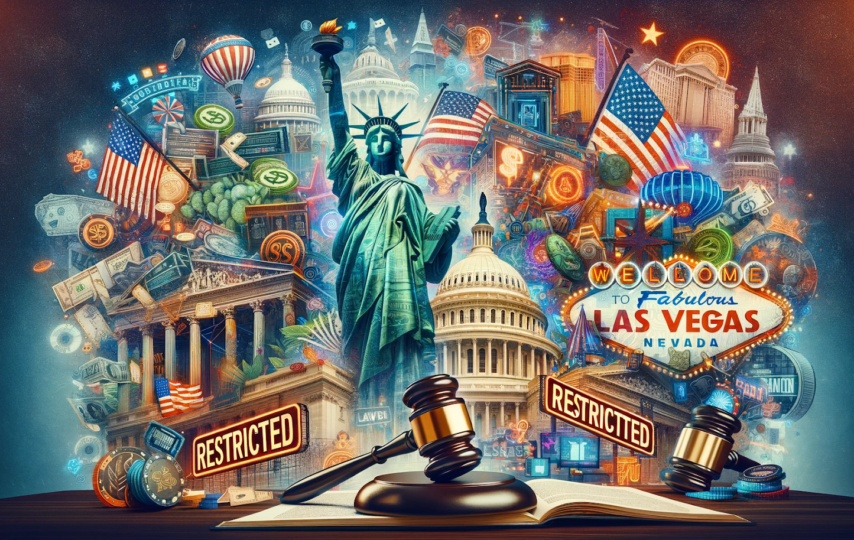The United States presents a unique and complex landscape for the gambling industry, characterized by its diverse regulatory environment and the significant revenue potential it offers. This intricate framework not only poses challenges for casino operators but also for affiliate sites, navigating the maze of advertising regulations and legal requirements.
U.S. Gambling Regulation: A State-by-State Approach
In the U.S., the regulation of online casinos is managed at the state level, leading to a patchwork of laws and regulations. The Federal Wire Act of 1961, originally aimed at sports betting, underscores the federal government’s stance on interstate gambling activities. However, its interpretation has expanded to other forms of gambling, though sports betting remains a primary focus of federal restrictions.
Each state has its regulatory body responsible for licensing operators, ensuring a fair and secure gambling environment, and penalizing violators. This decentralized regulatory approach means that operators must adapt to a wide range of legal landscapes, each with its unique requirements and challenges.
Gambling Industry Statistics and Trends
The U.S. gambling industry has shown remarkable resilience and growth. In 2021, the gross gambling revenue nearly reached $53 billion, a significant increase from the previous year affected by the COVID-19 pandemic. Slot machines and casinos, including 466 commercial and 515 tribal casinos, are major revenue drivers. In 2023, the industry achieved a record-breaking $66.5 billion in winnings, with sports betting alone generating $10.92 billion in revenue from a staggering $119.84 billion wagered by Americans.
Challenges for Casino Operators and Affiliates
Entering the U.S. gambling market presents significant challenges for casino operators. The need to secure state-specific licenses, coupled with the daunting task of competing against well-established brands, already sets a high barrier to entry. Furthermore, the market is characterized by stringent advertising restrictions, particularly on major platforms such as Google and Facebook, which significantly curtails the ability of operators and affiliate sites to effectively promote their services to potential customers.
Amid these challenges, Nodar Giorgadze, CEO of affiliate site Gamblorium, shared his perspective on the intricacies of engaging with the U.S. market: “Americans have one of the highest income levels and a strong affinity for gambling, as evidenced by the colossal revenues of places like Last of legal chan Vegas. Despite the lucrative potential, the U.S. market is intricate and highly competitive. Staying abreasges, especially regarding advertising, is crucial. The risk of investing in a site’s development, only to face potential blocking due to regulatory missteps, is significant. Therefore, while the U.S. remains a key market, Gamblorium has not ventured into it and, frankly, has no immediate plans to do so. There are many other exciting markets we are looking to enter in the near future.“
Gamblorium.com, an esteemed iGaming affiliate platform, provides insightful reviews and guidance on casino brands, bonuses, and gaming options across various global markets.
Conclusion
The U.S. gambling market, with its stringent regulations and competitive landscape, poses unique challenges not only for casino operators but also for affiliate sites. While the potential for revenue is high, the complexity of legal and advertising regulations makes it a challenging environment to navigate. As the industry continues to evolve, staying informed and compliant will be key to success for those looking to operate within this dynamic market.








